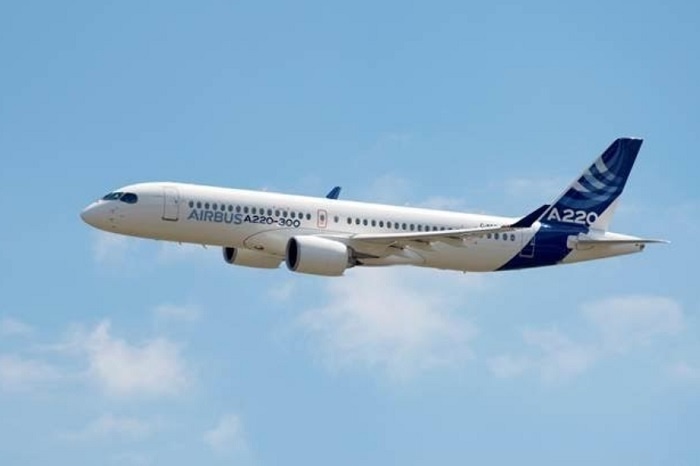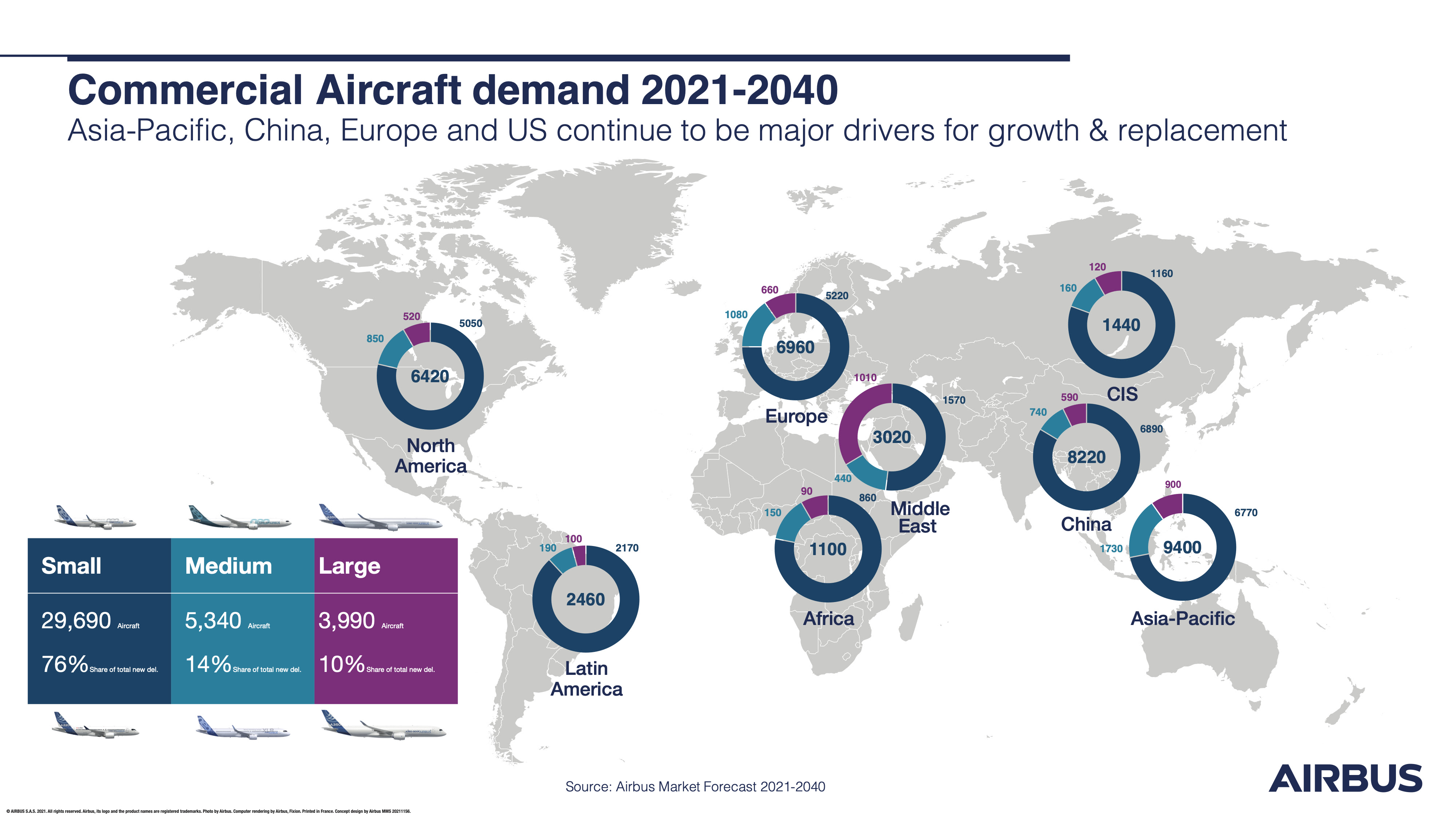
Dubai Airshow: Airbus predicts huge demand for fuel-efficient aircraft
In the next 20 years, Airbus forecasts demand for air transport will progressively shift from fleet growth to the accelerated retirement of older, less fuel-efficient aircraft.
The move will result in a need for some 39,000 new-build passenger and freighter aircraft, 15,250 of these for replacement.
As a consequence, by 2040 the vast majority of commercial aircraft in operation will be of the latest generation, up from some 13 per cent today, considerably improving the CO2 efficiency of commercial aircraft fleets.

The economic benefits of aviation extend beyond the sector, contributing around four per cent to annual global GDP and sustaining some 90 million jobs worldwide.
ADVERTISEMENT
While having lost nearly two years of growth over the Covid-19 period, passenger traffic has demonstrated its resilience and is set to reconnect to an annual growth of 3.9 per cent per year, driven by expanding economies and commerce around the globe including tourism.
The middle classes, who are the likeliest to fly, will grow in number by two billion people to 63 per cent of the global population.
The fastest traffic growth will be in Asia with domestic China becoming the largest market.
“As economies and air transport mature, we see demand increasingly driven by replacement rather than growth.
“Replacement being today’s most significant driver for decarbonisation.
“The world is expecting more sustainable flying, and this will be made possible in the short-term by the introduction of most modern airplanes,” said Christian Scherer, chief commercial officer and head of Airbus International.
“Powering these new, efficient aircraft with Sustainable Aviation Fuels (SAF) is the next big lever.”

